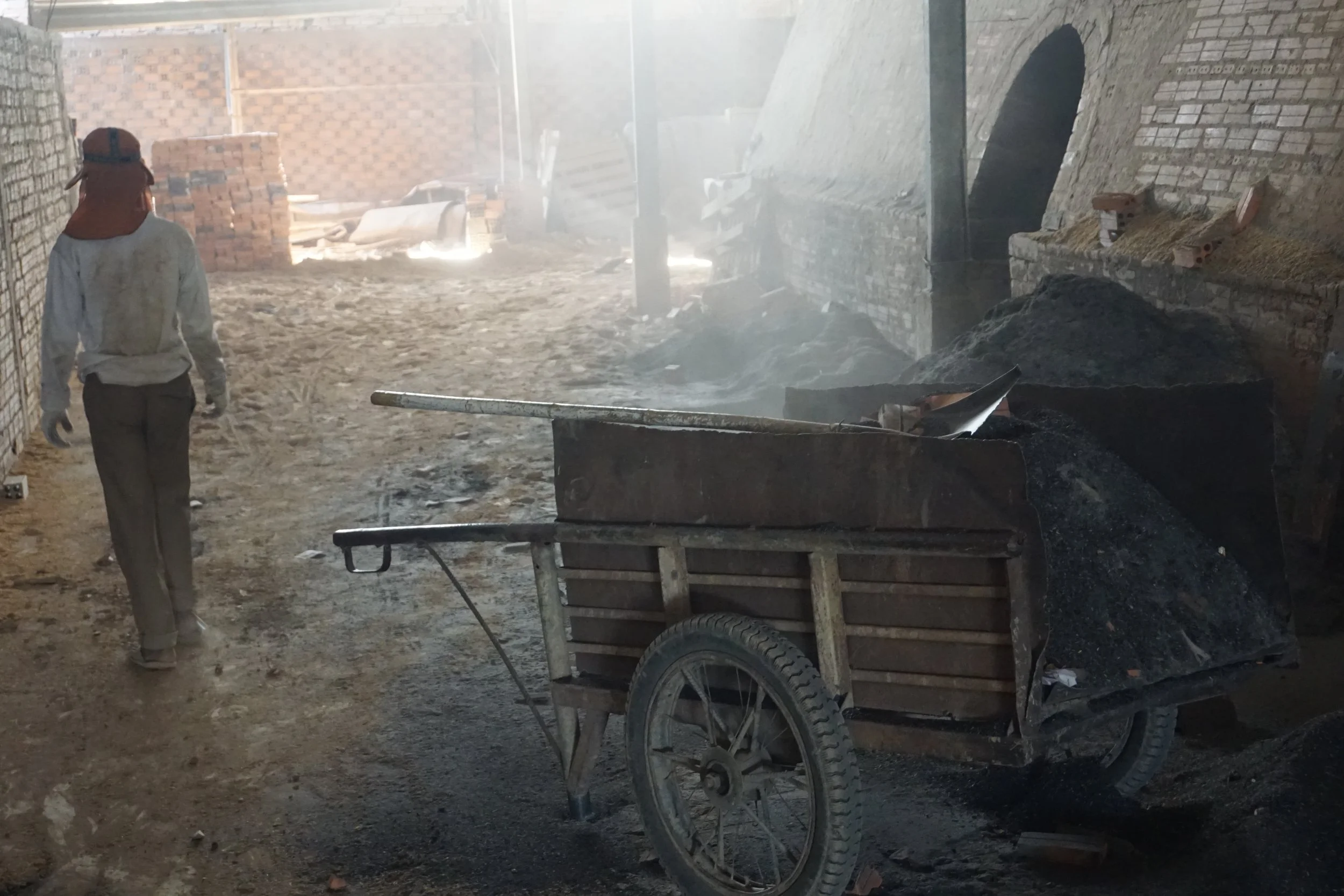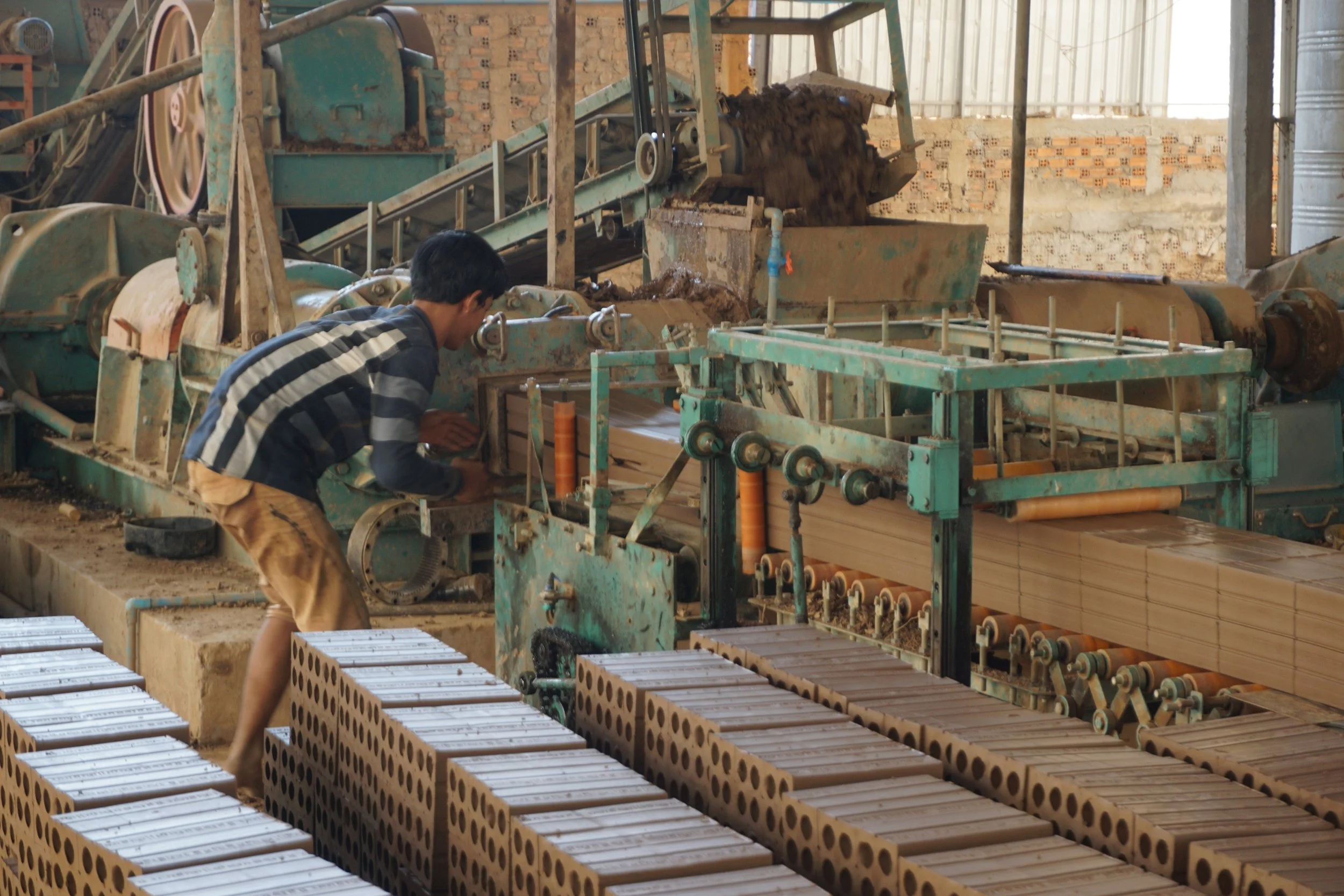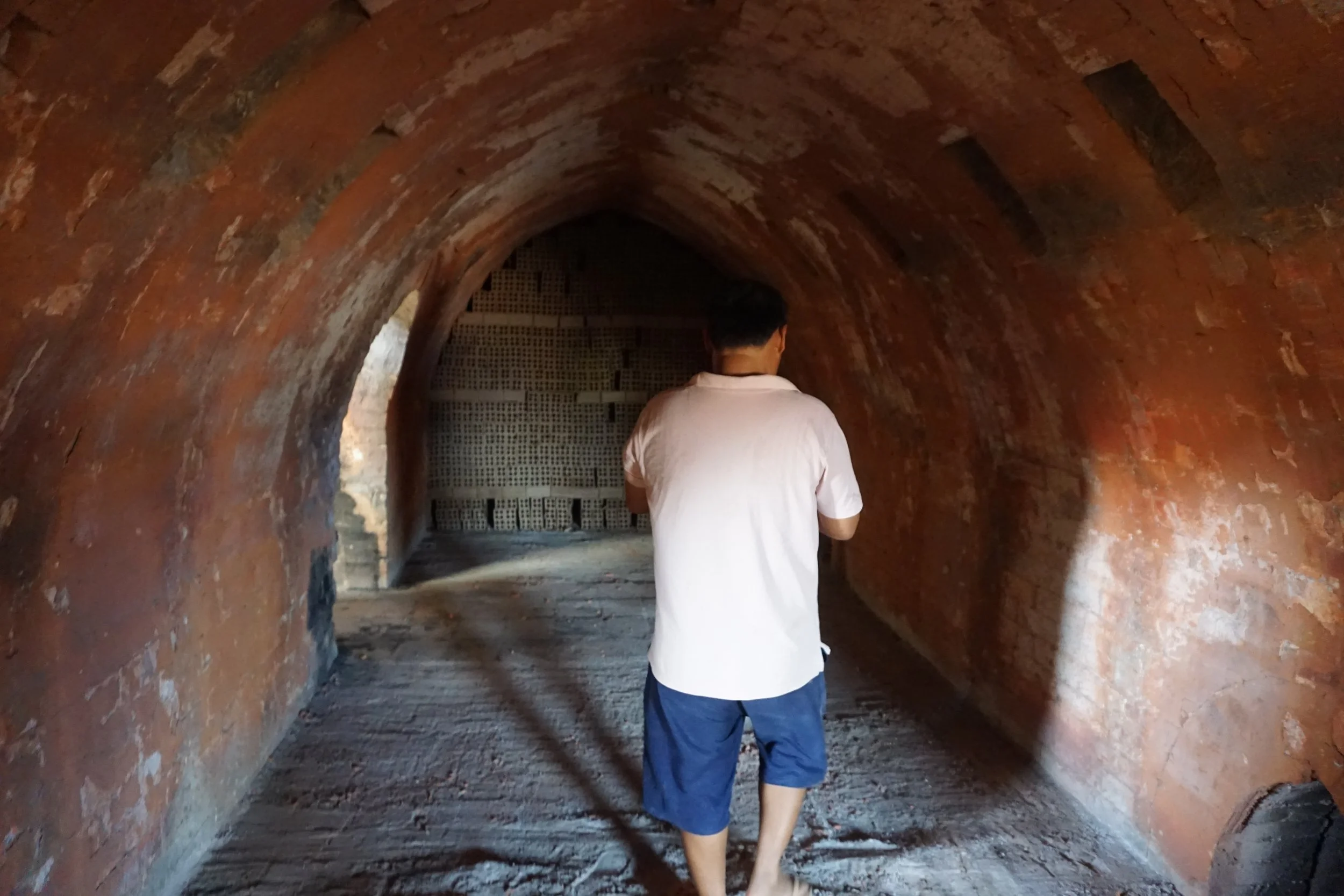Sayana’s Story
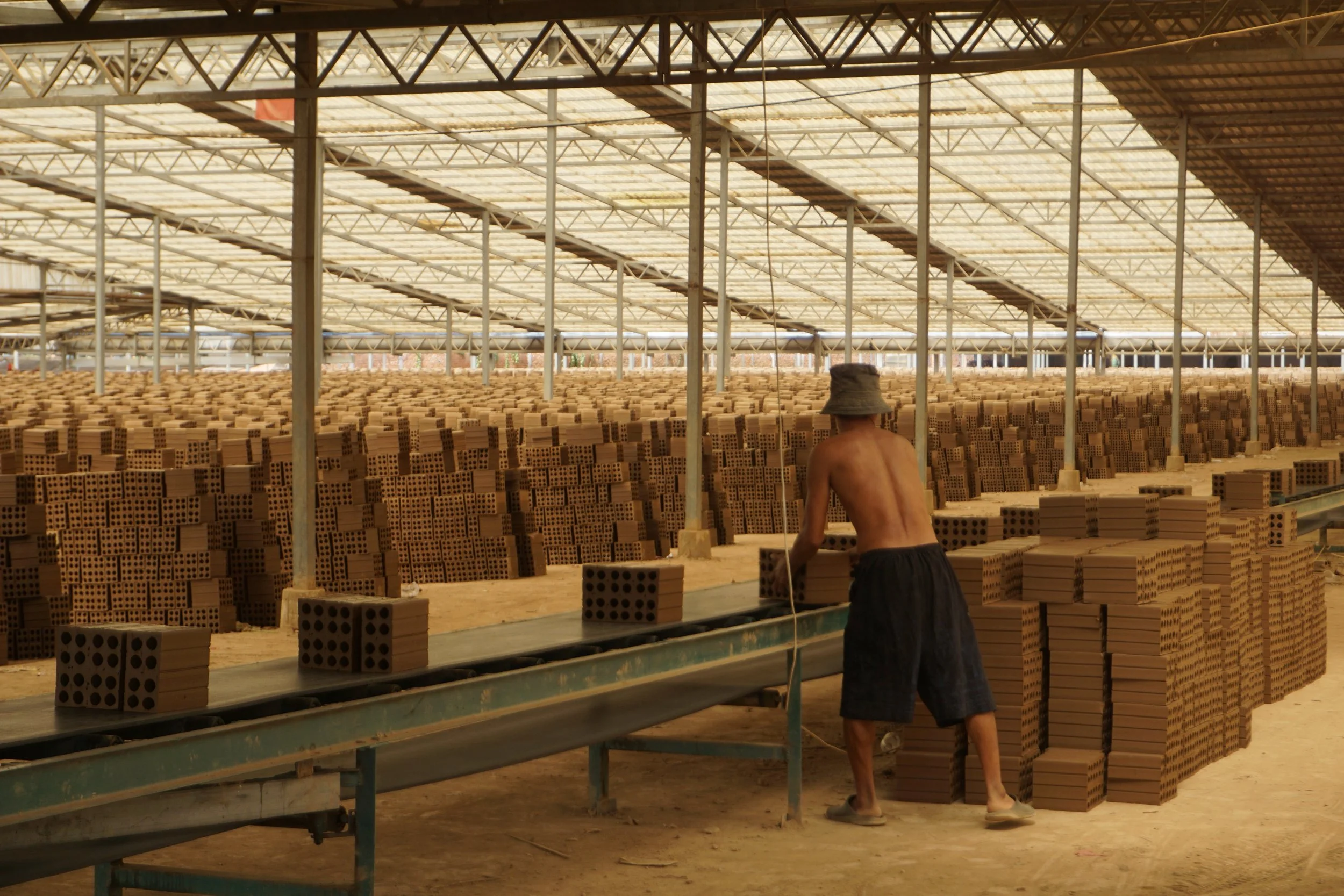
As a child, Sayana never knew much other than stacking bricks. No school, no holidays, no cartoons, and rarely a ball, a toy, or a teddy, or much time to play with them.
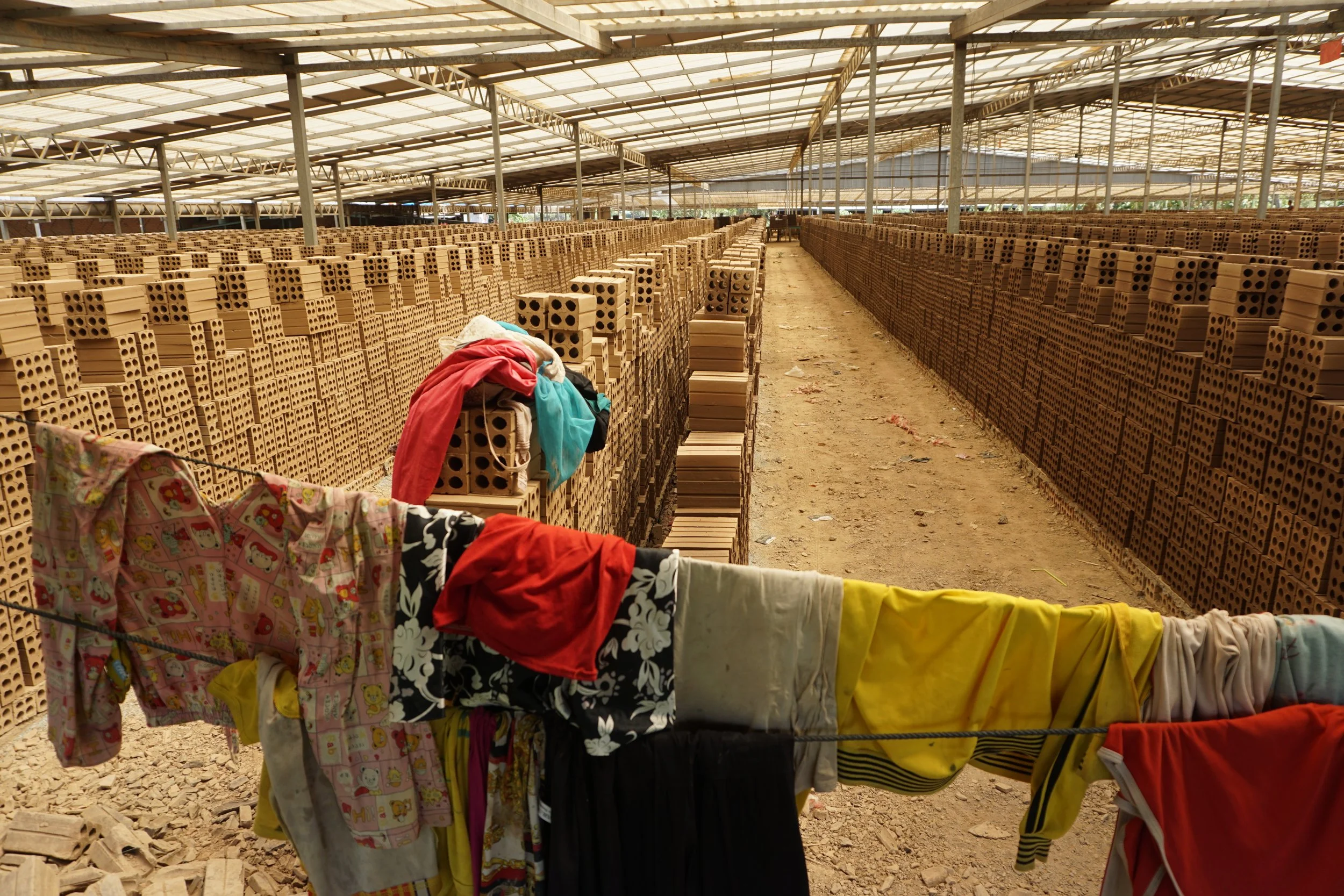
When she was eight, she moved with her older sister and parents to the brick yard, where they lived alongside about a dozen other families in a row of shacks made from scrap timber and tin – all of them working to pay off debts owed to the brickyard’s owner.
They referred to him as uncle. He had come to them as a saviour.
This is a firsthand account from the survivor who wanted their story told.
Read by Mitch Salmon | Soundscape by Lynne Pearson
Before the brick yard, Sayana spent her days caring for her elderly grandfather on the family’s small farm, where they grew enough rice, fruit, vegetables, ducks and chickens to feed themselves and some bits to sell from their roadside grocery store. They lived relatively comfortably until grandpa fell sick; years of medical bills drove the family into spiralling debt.
With loan sharks at their door, they were forced to sell their home. Then, with nowhere to go – and still multiple outstanding debts – they turned to the brickyard owner, who bought out their debts and give them a place to live, work and repay him, one brick at a time.
“At that moment, we owed him $800. With four sets of hands to do the work, we figured we would be in the clear with a year,” Sayana said. “We couldn’t see clearly at that time. We were so wrong.”
The brickyard boss was mostly jovial with those working under him, playing the role of benevolent patron. But he was also a police officer and a domineering character, and in his brick yard, he made the rules.
Work began at 5am and continued until dark, stopping only for an hour’s rest around midday. Visitors were not allowed on-site and residents were rarely allowed out, with children left as collateral during important religious ceremonies or funerals. Families who failed to meet targets had their pay cut. Safety standards and protective equipment were non-existent and illness and injury were treated by a doctor brought onsite by the boss.
The atmosphere is dark and draining, almost hellish, due to heat generated by the fires burning under stacks of bricks inside the giant handmade kilns. The air is charred, dry and dense with dust kicked up from the ashen floors. Lungs heave. Sanitation is poor and so is nutrition, with families cutting down meals and eating low-quality food to pay off debts quicker. Getting sick, it soon became clear, would become a defining feature of life in the brick yard – and a vital tool in keeping families trapped there, with exorbitant treatment costs, rent and utilities fees added to debts, which were a constantly-moving figure controlled arbitrarily by the boss. Most months, debts would grow, rather than decrease. In fact, the whole system was designed to drive them deeper into debt, binding them further to life in the brick yard.
“We were trapped,” Sayana said. “We thought he was our angel but he in reality he was worse than the devil. It was impossible to make enough bricks to clear the debt.”
Fourteen years after her parents first turned to the brick kiln boss, Sayana still works for him. The magic number is almost double the original $800 he paid to consolidate their debts. Now, Sayana is a young mother, married to a man who had grown up alongside her in the brick yard. And she is counting down the days until her own son, now three, is old enough to stack bricks.
“Its not what I want for my children, but its our only hope,” she said. “After so many years in here, I’m not sure how we could live in the outside world.”
Slavery turns HOPE to HORROR
Slavery should not exist. But trafficking, slavery and exploitation can begin so subtle that they are near impossible to detect. Modern slavery is often disguised and many victims do not even realise they are trapped until they attempt to leave.
That's why we need your help advocating for people like Sayana. Your support in advocating, calling businesses to account, working with government to create better legislation and policies, and changing the way we shop can help make these scams.
Make an impact today
Thank you for being a part of fighting this exploitation, and helping keep people like Sayana free from slavery.

